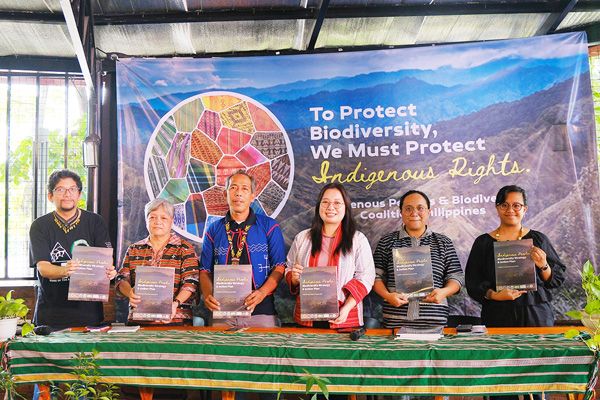Indigenous Peoples from Philippines set to join United Nations biological diversity confab in Colombia
DAVAO CITY – A Indigenous Peoples delegation from the Philippines is set to join the 16th Conference of Parties (COP16) of the United Nations Convention on Biological Diversity (CBD) in Cali, Colombia next week to share an IP-led plan to help save key biodiversity areas in the country.

DELEGATES to the 16th Conference of Parties (COP16) of the United Nations Convention on Biological Diversity (CBD) in Cali, Colombia.
In a statement, representatives from IP groups and IP rights’ advocates said that they will present an indigenous-led plan to save the globally important biodiversity hotspots of the Philippines.
It added that 96 out of 128 key biodiversity areas are located in IP territories.
At the COP16, delegates from governments, corporations, industry, and non-government organizations will gather to discuss mobilization of resources to support global action on biodiversity.
Jill Cariño, an indigenous Ibaloi woman leader and coordinator of the Partners for Indigenous Knowledge Philippines (PIKP), said that along with IP advocates, they have been developing an Indigenous Peoples Biodiversity Strategy and Action Plan (IPBSAP) which binds their collective commitments to protect the country’s last remaining ecological corridors.
“Indigenous governance and knowledge systems currently protect over 1.35 million hectares or one-third of the Philippines’ key biodiversity areas situated within our ancestral domains,” said Cariño.
The delegation to the COP16 represents the Indigenous Peoples and Biodiversity Coalition Philippines (IPBC PH), a newly formed national gathering of IPs and support organizations upholding the tribes’ rights towards the protection, conservation, enhancement, and sustainable use of biodiversity.
It added that the IP-led plan is aligned with the 23 targets set out in the Kunming-Montreal Global Biodiversity Framework (KMGBF), the latest agreement passed by the UN CBD in 2022 in which the Philippine government is a party to.
“The IPBSAP aims to highlight local indigenous plans, agro-ecological knowledge systems and practices, and other culture-based nature solutions as indispensable to halting biodiversity loss in the country.”
The IPBSAP, Cariño said, is a living document that is rooted in the realities of the ancestral domains and indigenous territories across the country. “It is supported by actual local community knowledge, practices, and initiatives that need to be recognized as valuable contributions of indigenous peoples to biodiversity conservation in policy formulation, legislation, and governance.”
Asami Segundo, a young Ikalahan-Kalanguya woman from the northern Philippines, said that bringing the IPBSAP to Colombia is part of the process to enrich the home-brewed plan.
“We hope to share this indigenous-led plan with the rest of the world at the CBD COP. The IPBSAP can cross-pollinate with other strategies and innovations from other nations. But most importantly, we hope it sends the signal to world leaders that they must let indigenous peoples lead as we have the blueprints to save life on Earth as we know it,” Segundo said.
She added that seven of the 23 KMGBF targets reaffirm the respect and recognition of rights, knowledge and practices, and territories of IPs.
“Clearly, indigenous peoples are part of the plan. We hope the IPBSAP inspires other nations on one hand, and instills deeper commitment for the Philippine government on the other, to support the time-honored customs of biodiversity governance of indigenous peoples.”